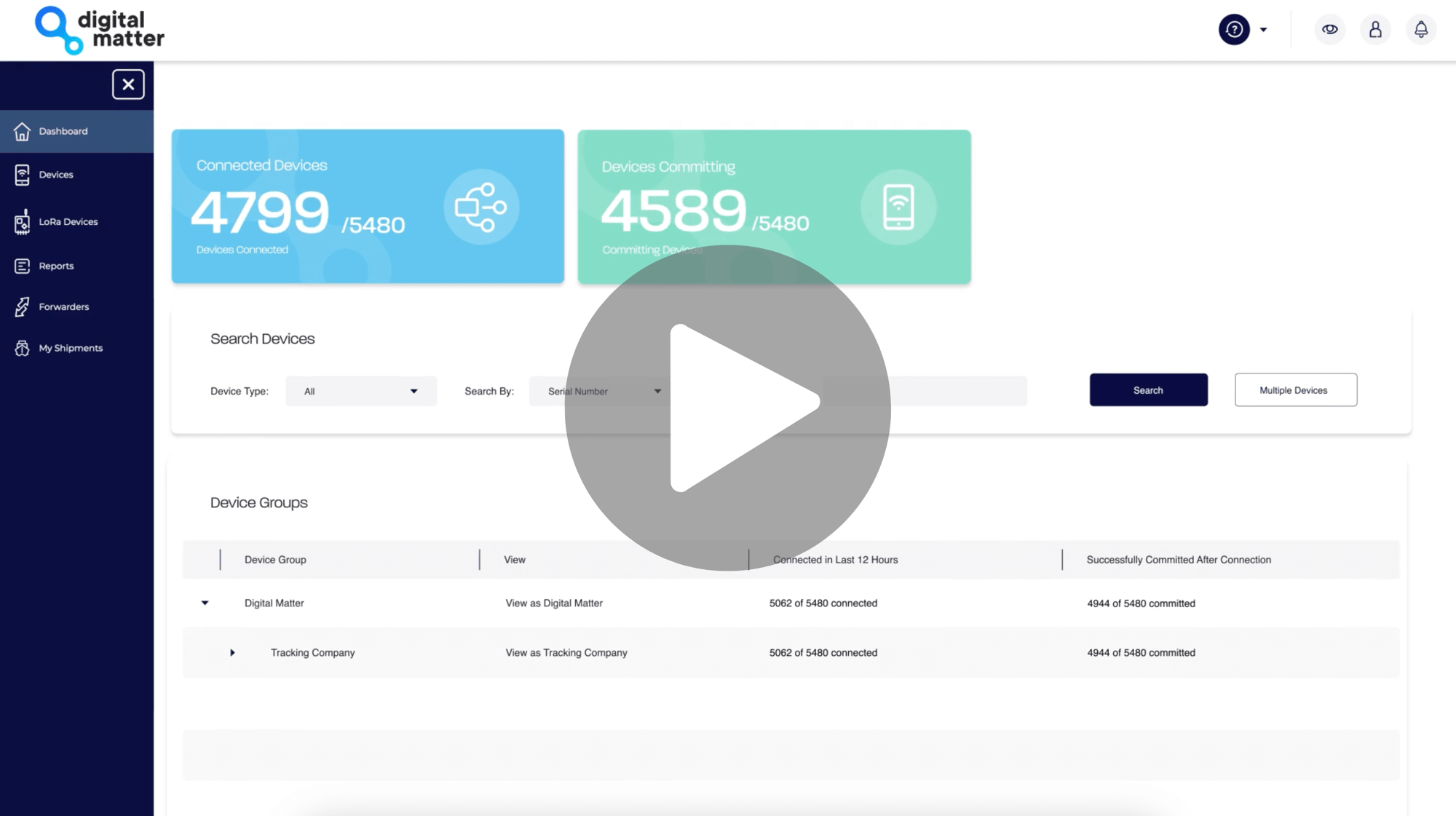Choose Your Sensor
The versatile Hawk architecture caters for plug-and-play I/O Cards that define the 9 inputs/outputs, offering limitless options for interfacing to sensors.
The Hawk Pro is a robust plug-and-play IoT data logger and sensor hub designed to support an extensive range of sensor integrations.
Caters to plug-in cards that define the 9 inputs/outputs, offering near-limitless options
for interfacing to sensors.
Bluetooth®, SDI-12, I²C, 1-Wire, iButton, 4-20mA, RS-485, RS-232, Analog Inputs, Digital Inputs, Pulse Counting, Digital Outputs, Switched Power, and more.
Select only the hardware components you need to build your specific solution.
Power the Hawk Pro with a large internal rechargeable LiPo battery, external power including solar, or 2 x D Cell LTC. Can also supply power to external sensors.
Select from our ultra-rugged and waterproof housing options (IP68 and IK07) with or without GORE® vent, or build your own.
On-device data processing, eliminating network delays and triggering tasks or events exactly when needed.
Onboard GPS Location, Accelerometer, and Data Storage.
Over-the-air (OTA) device configuration, management, and firmware updates.
Securely send data to any end platform via TCP Direct or HTTPS Webhook.
Military-level AES-256 Encryption to protect data integrity and confidentiality. Data sent to third-party systems is sent via HTTPS, providing end-to-end security.
Nordic nRF9160 Modem operates on all major global LTE-M and NB-IoT bands.
Supported LTE bands: LTE-M (Cat-M1): B1, B2, B3, B4, B5, B8, B12, B13, B14, B18, B19, B20, B25, B26, B28, B66
NB-IoT (Cat-NB1/NB2): B1, B2, B3, B4, B5, B8, B12, B13, B17, B19, B20, B25, B26, B28, B66
Internal Micro 3FF SIM
Operating: -30°C to +60°C
Recommended Storage: 10°C to 30°C, Humidity 30%. Store in a cool, dry place.
LiPo Charger: At <-10°C and >+45°C the internal backup battery will not be charged as a safety precaution due to the dangers associated with charging batteries at extreme temperatures.
Built-in self-resetting fuse makes installation simple and safe.
Internal. Supports optional external antenna for maximum range.
Internal.
Onboard LiPo battery charger with selectable charge rate.
3-Axis Accelerometer to detect tampering (planned in future firmware release).
2 Diagnostic LEDs and Push Button for testing and operational status.
Store months of records if device is out of cellular coverage. View storage capacity here.
The device reports internal temperature and prevents the internal battery from charging in extreme temperatures. Internal temperature provides an indication of ambient temperature but may not always be precise. Use an external sensor for precise temperature monitoring.
Nordic nRF9160 internal GPS
GPS
~3m CEP
* Positioning accuracy specifications are provided by the GNSS module supplier and reflect ideal conditions. Device configuration, installation, environmental conditions, augmentation services, and many other factors may lead to variations in positioning accuracy.
GPS predicted ephemeris data for greater sensitivity and position accuracy.
GPS signals are boosted by a low-noise amplifier (LNA) allowing operation in low signal.
1 x Digital input with configurable pull up/pull down
0-40V DC input range
On/Off thresholds: ON > 2V, Off < 1V
Can be used for pulse counting (max 40MHz)
The versatile and flexible Hawk architecture caters for plug-in cards that define the 9 inputs/outputs, offering limitless options for interfacing to sensors. Flexible onboard output power to power your sensors. See the current card list below or contact us to discuss your requirements.
LiPo battery and external voltage readings for ‘Battery Low’ and ‘Power Loss’ alerts.
Powerful onboard task management allows you to schedule tasks or run tasks based on sensor thresholds and events, even when out of cellular coverage.
Powered by 3500mAh rechargeable LiPo battery to support full season deployments. Optionally connect the Hawk to an external
power source (6-28V) such as a solar panel or grid power.
3500mAh LiPo rechargeable battery
6-28V DC (max)
For continuous operation at high temperatures and high output load currents we recommend an input voltage of 12V or higher.
Built-in self-resetting fuse makes installation simple and safe.
Designed to optionally use a variety of solar panels.
Powered by 2 x D Cell LTC batteries for a completely self-powered solution.
2 x D Cell (3.6V per cell). Batteries not included.
Lithium Thionyl Chloride (LTC)
Battery selection is very important. Follow this link to learn more. Please dispose of Lithium batteries in a safe and responsible manner.
Designed to accommodate the PCB, I/O Card, and pre-installed 3500mAh rechargeable LiPo battery.
180 x 119 x 39 mm (7.1 x 4.7 x 1.5 in)
Non-branded nylon glass housing is suitable for white labeling.
Ultra-rugged and waterproof IP68 and IK08-rated housing to ensure the device can withstand impact, fine dust, and brief submersion.
Allows for pressure equalization while protecting against water and dust ingress.
Multiple installation options for securing the device with screws, bolts, cable ties, rivets, and more.
Includes 2 cable glands to allow for waterproof cable entry to the housing.
Designed to accommodate the PCB, I/O Card, and 2 x D Cell LTC batteries.
185 x 150 x 30 mm (7.3 x 5.9 x 1.2 in)
Non-branded nylon glass housing is suitable for white labeling.
Ultra-rugged and waterproof IP68 and IK07-rated housing to ensure the Hawk can withstand impact, fine dust, and brief submersion.
Allows for pressure equalization while protecting against water and dust ingress.
Multiple installation options for securing the device with screws, bolts, cable ties, rivets, and more.
Includes 2 cable glands to allow for waterproof cable entry to the housing.
Remotely configure sensor sampling rates, position updates, upload intervals, and more.
Manage, monitor, configure, debug, update, and restart devices remotely from our cloud-based device management system.
Configurable with DM-Link provisioning tool.
TCP Direct or HTTPS Webhook
Military-level AES-256 Encryption from device to Device Manager to protect the integrity and
confidentiality of your data. Data forwarded to third-party systems is sent via HTTPS for end-to-end security.
Two-year manufacturer’s warranty. Exclusions apply.
Please check our knowledge base for regulatory and network certifications.
Certifications are not valid if using the Hawk without Digital Matter housing or with an external antenna.
The Hawk’s sensor interfaces and protocol are managed by ‘I/O Cards’ - a range of plug-in Input/Output cards standardized for common applications. See the current card list below or contact us to discuss your requirements.
1 x Digital Input with configurable pull up/pull down
0-40V DC input range
On/Off thresholds: On >2V, Off <1V
Can be used for pulse counting (max 40Hz)
1 x Switched Ground (1A current limit)
Yes
Yes
3.3V Switched Power for Sensors
5V or 12V Selectable Power for Sensors
Yes
Yes
4 x Analog Inputs (0-30V range)
1 x Switched Ground
Yes
3.3V Switched Power for Sensors
5V or 12V Selectable Power for Sensors
Yes
BGM240PA22VNA3
1 x Analog Input (0-30V range)
1 x Digital Input with configurable pull up/pull down
0-40V DC input range
On/Off thresholds: On >2V, Off <1V
Can be used for pulse counting (max 40Hz)
1 x Switched Ground (1A current limit)
3.3V Power Out for Sensors
5V or 12V Selectable Power Out for Sensors
Yes
Yes
Yes
2 x Analog Inputs (0-30V range)
5 x Digital Inputs with configurable pull up/pull down
0-40V DC input range
On/Off thresholds: On >2V, Off <1V
Can be used for pulse counting (max 40Hz)
1 x Switched Ground
5V or 12V Selectable Power Out for Sensors
1 x Analog Input (0-30V range)
1 x Digital Input with configurable pull up/pull down
0-40V DC input range
On/Off thresholds: On >2V, Off <1V
Can be used for pulse counting (max 40Hz)
1 x Switched Ground
Yes
3.3V Power Out for Sensors
5V or 12V Selectable Power Out for Sensors
Yes
1 x 4-20mA input
1 x Analog Input (0-30V range)
2 x Digital Inputs with configurable pull up/pull down
0-40V DC input range
On/Off thresholds: On >2V, Off <1V
Can be used for pulse counting (max 40Hz)
1 x Switched Ground (1A current limit)
5V or 12V Selectable Power Out for Sensors
Yes
Yes
4 x 4-20mA Inputs (+ and -)
5V or 12V Selectable Power Out for Sensors
The versatile Hawk architecture caters for plug-and-play I/O Cards that define the 9 inputs/outputs, offering limitless options for interfacing to sensors.
Power the Hawk with a large internal rechargeable LiPo battery, external power including solar, or 2 x D Cell LTC or Alkaline batteries.
Select from our ultra-rugged housing options or build your own.
Securely send data to your end platform via TCP Direct or HTTPS Webhook.
The Hawk represents a significant advancement in remote monitoring applications, transforming the industry with
its flexible and unique approach to IoT sensor monitoring hardware.
Challenge Solution Outcomes Trade waste from industrial and commercial activities often contains hazardous substances that, if managed incorrectly, can harm...
.png)
Challenge Solution Outcomes Feral cats and goats devastate Australia’s native wildlife and habitats, and manually monitoring their locations across vast,...
.png)
Using the asset-tracking and remote monitoring capabilities of the Hawk Pro, a team of undergraduate researchers at the University of Southampton developed the iBuzz2: a...

Explore how researchers in Western Australia's Department of Biodiversity, Conservation, and Attractions are using the Hawk to promote animal welfare.

Learn how Watermappers is utilizing the Hawk IoT Data Logger for hydrological cycle modelling and groundwater mapping.

The Hawk Pro is the original Hawk PCB, with flexible power options and compatibility with external power sources. It can use an internal LiPo battery for backup in case of external power interruptions and is compatible with LTC D Cell Batteries.
The Hawk Lite represents the latest PCB option for the Hawk IoT Datalogger, compatible with lower energy, lower cost Alkaline D Cell batteries.
To learn more, please visit Hawk Pro vs. Hawk Lite.
The Hawk Pro is compatible with Solar, containing a smart charging circuitry on its PCB, which can be connected to a rechargeable LiPo battery when used with the LiPo Housing.
A solar panel can be connected directly to the external power input on the device. This provides the internal battery with sufficient quantities of sunlight.
Please visit the Digital Matter Knowledge Base to learn more about powering the Hawk:
The Hawk allows for the connection of one card to a single Hawk PCB at a time. A diverse range of deployment-ready cards are available, which define a specific combination of inputs/outputs to suit broad user requirements. Custom card development is also available.
The number of records the Hawk can store is dependent on what sensors are used.
If an SDI-12 probe is used, the Hawk can store approximately 40, 000 records, as more space is used.
If using a sensor other than an SDI-12 probe, the Hawk can store approximately 80, 000 records; the equivalent to sampling every 10 minutes for almost 1 year.
Once the Hawk uses up its internal flash, it begins to overwrite the oldest stored records.
All Digital Matter devices allow you to direct collected data to an endpoint of your choosing.
Integration options include sending the data securely via Device Manager to an elected endpoint or via a Raw TCP payload directly to a third-party server.
To learn more, visit the Digital Matter Knowledge Base: Choosing an Integration Strategy
Yes, the Hawk requires a Micro 3FF SIM card.
Digital Matter does not provide required SIM cards, which allows users to choose the data plan that best suits their usage requirements.
For advice on choosing a SIM, please visit the Digital Matter Knowledge Base: LTE-M/NB-IoT SIMS – Roaming and Setup
Military-level AES-256 Encryption is used between the Hawk and Device Manager, to protect the integrity and confidentiality of its data. Data which is forwarded to third-party systems is sent via HTTPS, providing end-to-end security.
The expected battery life of the Hawk will depend on the way the device has been configured and the type of sensors that have been fitted to the device. Different sensors will have different power draws, warm-up times and sampling times, resulting in varied battery life estimates.
Digital Matter has 20 years of experience designing battery powered devices that endure long lifespans, with decades of learnings applied to the Hawk’s design.
The following depicts an example of estimating battery life for the Hawk based on specific configurations and sensors:
A Hawk using 2 LTC batteries, powering an SDI-12 Soil Moisture probe, which samples every 15 minutes, uploads every hour and receives a GPS fix once per day, will expect more than 5 years of battery life.
For more information or to estimate your expected battery life, we have developed a Hawk Battery Life Estimator, which is available from the Digital Matter Knowledge Base: Battery Life Estimator
The Hawk is designed to integrate with almost any sensor available on the market.
Some sensor interfaces are “plug and play”, requiring only over-the-air (OTA) updates to configure and activate.
These include:
Other interfaces require firmware development to integrate:
For more information, please visit the Digital Matter Knowledge Base: Hawk – Supported Sensors
The Hawk communicates via LTE-M and/or NB-IoT. For IoT applications, these cellular technologies have numerous advantages over traditional “4G”. They use less power, less data, and have a greater range and permeability.
In addition, the Hawk can be connected to an external antenna. This allows users to deploy the Hawk in extremely low-signal environments such as in a basement or sewer, while still receiving connectivity by boosting the signal, or running the antenna to a position where it can connect.
To learn more, visit the Digital Matter Knowledge Base: https://support.digitalmatter.com/en_US/hawk-iot-datalogger
To ensure waterproof cable entry into the housing, the diameter of the cable used should be between 2.5mm - 6.5mm. It should also be an extruded cable with 2 or more cores.
Manage device performance over-the-air (OTA) and access a comprehensive library of device parameters to configure device behavior to monitor multivariable data for your specific application.
Control reporting frequency, movement-based events, accelerometer sensitivity, I/Os, and much more, or work with our engineers to build out a fully customized solution.

Find the answers you need in our comprehensive Knowledge Base.